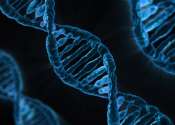Study identifies group of genes with altered expression in autism
Autism has long been associated only with behavioral and environmental factors, but the role of genetics in its development is now increasingly evident. Some 100 genes have been found to play a role in autism spectrum disorder, ...
May 15, 2020
0
124









